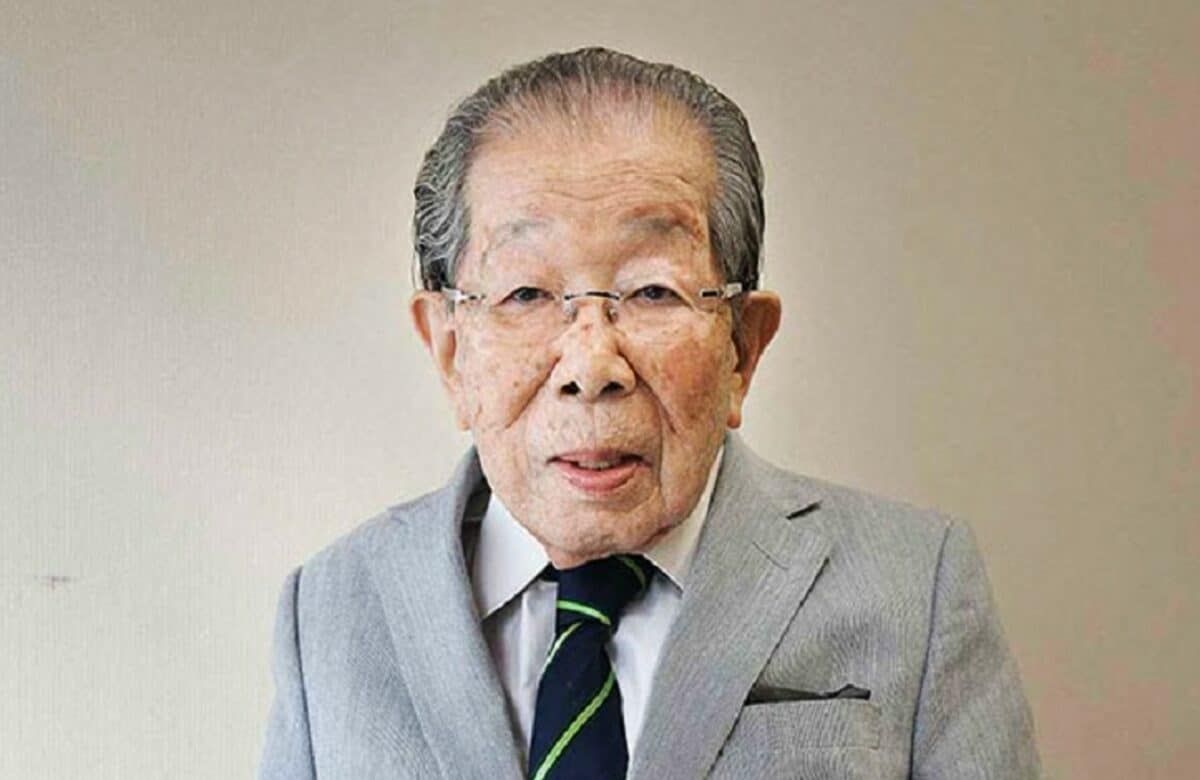Dr. Shigeaki Hinohara was a Japanese physician who gained much insight into his favourite question; what makes people live longer? He clearly practiced what he preached — he worked as a doctor until a few months before his death, at 105 years old.
His wisdom for longer life include some fairly intuitive points, and some not-so obvious ones.
Fun Is the Best Painkiller
Hinohara didn’t subject other people to his complaints of aches or pains. He looked to the wisdom of children when it came to dealing with pain — who often forget their discomfort through the distraction of play (after some screaming and crying first, but maybe miss that part out).
Along with diverting your focus to the positive, fun has physical benefits on your body — laughter decreases stress hormones and increases the flow of immune cells and infection-fighting antibodies.
Well, they did always say laughter was the best medicine.
Don’t Place Too Much Importance on Material Possessions
Often the best memories we have are from experiences. It’s been shown that we derive more happiness from experience than we do from owning material goods, especially when those experiences are shared with other people.
The good doctor’s advice is to divest of material burdens. You never know when you’re going to kick the bucket and you can’t take any of your ‘stuff’ with you anyway.
Carry Your Own Shopping and Use the Stairs
Regular physical activity is one of the most important factors in staying healthy, whether you’re eight or eighty. Your muscles have a kind-of ‘use them or lose them’ quality, as do your brain cells.
We evolved as hunter-gatherers walking up to 12 miles a day. Our bodies adapted to be healthiest from regular, moderate exercise. We’re not designed to sit at a desk for 8 hours daily.
When a person retires it’s tempting to just relax and take it easy, which is fine, but taking it too easy and sitting around all day does the body no favours. When we’re sedentary for too long fat starts building up and our muscles, as well as our brain cells, start withering from lack of use.
Regular exercise keeps muscles working and also promotes BDNF production in the brain; the main protein responsible for creating and developing new brain cells.
Dr Hinohara stressed the importance of moderate everyday physical activity. Opting for little bits of activity like walking, using the stairs and carrying your own shopping will keep your muscles active (and therefore working), help create new brain cells (literally keeping you smart) and fight aging.
Try Not to Over-Eat
Gluttony was always a sin, and it seems it has an effect on the body as well. The Dr warned against over-stuffing yourself as carrying needless bodyweight won’t do you any favours.
Excessive and frequent overeating can lead to obesity and the storing of too much excess fat can increase general risk of disease. It can also put strain on your digestive system and cause disruption in your circadian rhythm.
This isn’t to say you can’t have a buffet or a feast every now and then, just don’t do it three times a week.
Don’t Opt for Surgery First
Despite being a doctor himself, Hinohara advised against always listening to your doctor and going under the knife without trying less intrusive methods first (like laughter or music therapy).
He said many things can be cured without opting immediately for surgery, which is common wisdom in much eastern philosophy.
Purpose is Most Important — Keep on Livin’
Dr. Hinohara observed that when many people retire they just kind-of ‘stop’. Their diaries suddenly go from being full to almost empty and they find themselves idle.
The Dr had his schedule as full as he ever did when he was young, even past the age of 100. He had his hospital work scheduled as always, speaking engagements, social calls etc.
When a person stops planning they tend to stop living as fully. That’s not to say you should plan every single little thing you do, spontaneity and flexibility are important too (don’t schedule all your meals or bedtimes), but to stay active by planning work and hobbies is key to longevity.
“If you must retire, do it well after 65″
Hinohara noted the retirement age of 65 was set when average life expectancy was 68. Life expectancy these days hovers around the 80-years old mark.
Retiring in the olden days meant relaxing and slowing down for just a few years. These days, retiring at 65 means having a whole other lifetime to fill after finishing work.
Those people who continue working into their older years tend to live longer and have more fulfilling lives. There’s an important distinction though; those who are more fulfilled and live longest enjoy what they do. Working into your later years in a stressful or unfulfilling role is likely to shorten your lifespan, not lengthen it.
Having a job, role or hobbies you enjoy and which have demands on your time combine a lot of the secrets of what makes a person live longer.
It keeps your brain and body active, provides you with social contact and allows you to keep planning and scheduling. It makes sure you have things to do and things to look forward to, and most importantly, it maintains your sense of purpose.
Purpose ties it all together. Purpose is a reason to get up in the morning and keep going, especially when it involves responsibilities and other people.
If you don’t fancy working after retirement age, volunteering is a good option. It gives the benefits of mental stimulation, physical activity and social contact, but without much of the psychological/physical stresses that come with paid work or a career.
Simply put, to live longer, give yourself a reason to live.
Photo Credit- Dr Shigeaki Hinohara, aged 101. Photo by Karsten Thormaehlen, via Wikimedia Commons









Comments & Discussion
16 COMMENTS
Please login to read members' comments and participate in the discussion.